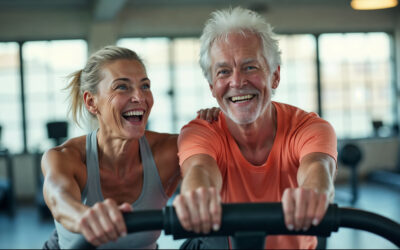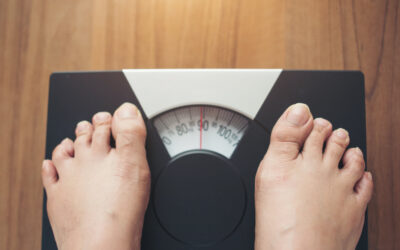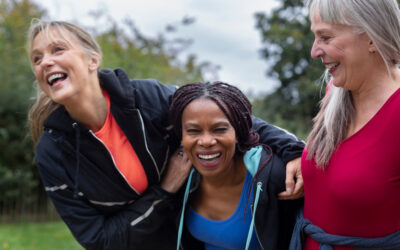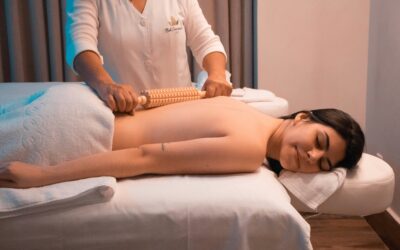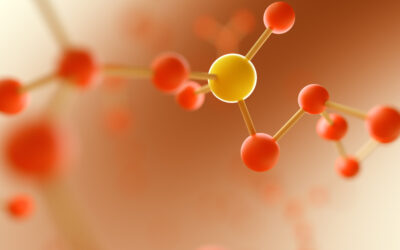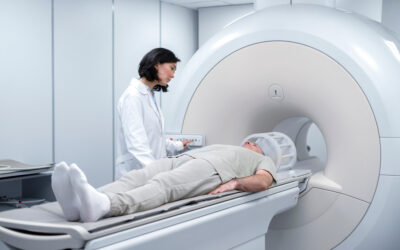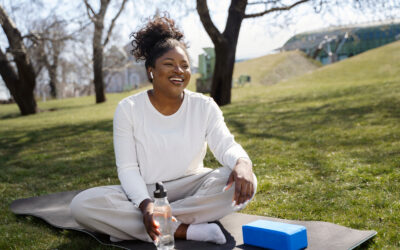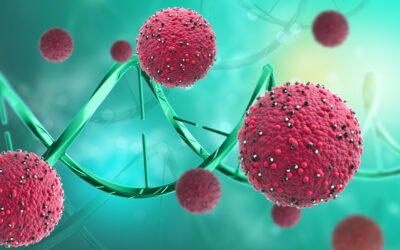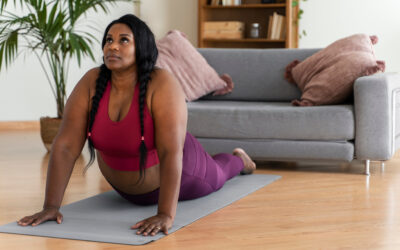Our Blog
Menopause & Andropause: Two Sides of the Same Longevity Coin
Menopause and andropause may occur differently in women and men, but science shows they are two expressions of the same biological reality: hormonal aging. As estrogen and testosterone decline, the body undergoes changes that influence metabolism, mood, bone strength, heart health, and overall longevity. Research reveals that these transitions are not merely markers of aging but powerful regulators of healthspan. By understanding the science behind hormonal shifts and adopting evidence-based lifestyle strategies, midlife can become a gateway to resilience, vitality, and long-term well-being rather than a period of decline.
Hormonal Decline vs Lifestyle Decline: Which Is Really Aging You?
Is aging driven more by declining hormones or by declining lifestyle habits? Science suggests it’s both—but lifestyle may be the more powerful accelerator. According to research from the National Institute on Aging and Harvard School of Public Health, hormonal shifts such as reduced estrogen, testosterone, and growth hormone are natural with age, yet physical inactivity, poor nutrition, chronic stress, and sleep deprivation can dramatically worsen their effects. Studies show that people who maintain healthy diets, exercise regularly, and manage stress display younger biological age markers than their peers. At Vitalis Origin, we believe aging is not just about time—it’s about daily choices that shape hormonal balance, vitality, and long-term healthspan.
Sleep Is the Ultimate Anti-Aging Tool: Why Resting Well Keeps You Young at the Cellular Level
Sleep is not just rest — it is one of the most powerful anti-aging tools available to the human body. Scientific research from institutions such as Harvard Medical School, the University of Rochester, and the Karolinska Institute reveals that quality sleep repairs DNA, clears toxic waste from the brain, balances hormones, and reduces chronic inflammation — all core drivers of aging. Studies show that even short-term sleep deprivation can activate biological pathways linked to accelerated aging, while consistent deep sleep supports cellular regeneration and cognitive longevity. Prioritizing sleep is therefore not a luxury, but a proven strategy for healthier aging and long-term vitality.
What Centenarians Eat, Do, and Avoid
What if living to 100 isn’t about extreme diets or expensive biohacks—but about simple, consistent habits practiced over decades?
Research on centenarians across the world’s longest-living populations reveals striking similarities in what they eat, how they move, and what they deliberately avoid. From plant-forward diets rich in legumes and vegetables to daily natural movement, strong social ties, and stress-moderating lifestyles, centenarians offer a science-backed blueprint for healthy aging. Backed by studies from institutions such as the Okinawa Centenarian Study, Loma Linda University, and the New England Centenarian Study, this article explores the evidence-based choices that support longevity, vitality, and healthspan—for both men and women at every stage of life.
Muscle, Hormones & Longevity: Why Strength Training Is Non-Negotiable
Strength training isn’t just about building bigger muscles — it is a cornerstone of hormonal health, metabolic function, and longevity for both men and women. As we age, natural declines in key anabolic hormones like testosterone, growth hormone (GH), and insulin-like growth factor-1 (IGF-1) contribute to muscle loss, metabolic slowdown, and increased vulnerability to chronic disease. But research shows that resistance exercise stimulates hormonal responses and improves muscle strength — helping to preserve muscle tissue, enhance metabolic health, support hormone balance, and ultimately promote longer, healthier lives.
Whether you’re navigating perimenopause, combating age-related muscle loss (sarcopenia), or simply aiming to age well, evidence supports that strength training paired with the right nutrition and lifestyle habits isn’t optional — it’s essential for longevity and vitality.
Why Aging Faster Is Optional: Lifestyle Choices That Slow Biological Age
Aging is not just about the number of years you’ve lived—it’s about how fast your body’s cells are aging. Modern science now shows that biological age can be younger or older than your chronological age, and the difference lies largely in daily lifestyle choices. From what you eat and how you move, to how well you sleep and manage stress, your habits send powerful signals that influence inflammation, hormone balance, and even gene expression.
The good news? Aging faster is not inevitable. Research reveals that nutrient-rich foods, regular physical activity, restorative sleep, and stress management can slow—or even partially reverse—key markers of biological aging. This article explores the science behind aging at the cellular level and offers practical, natural strategies to support longevity, vitality, and hormonal balance for both women and men.
At Vitalis Origin, we believe aging well is intentional. When you align your lifestyle with nature and evidence-based wellness, you don’t just add years to life—you add life to your years.
Breathing Exercises That Instantly Reduce Stress Effectively
Breathing is one of the simplest and fastest ways to regulate stress and support hormonal balance—especially for women in perimenopause and menopause. Research from Harvard Medical School (2023) shows that intentional slow breathing can instantly lower stress hormones, calm the nervous system, and improve sleep quality. From the Physiological Sigh to 4-7-8 breathing, these quick techniques help reduce anxiety, ease hot flushes and restore emotional balance—anytime, anywhere.
Foods That Make Perimenopause Symptoms Worse: What Every Woman Should Know
Perimenopause symptoms feeling stronger than usual?
Sometimes the trigger is on your plate. Certain foods—like refined sugar, alcohol, caffeine, and ultra-processed meals—can worsen hot flashes, mood swings, sleep issues, and inflammation.
At Vitalis Origin, we help women understand what their bodies are saying. With the right food choices, your hormones can find balance again—naturally, gently, and powerfully.
Your journey through perimenopause should feel supported… not overwhelming.
Morning & Night Routines for Hormonal Balance
Balancing your hormones begins with the simple routines you build at sunrise and sunset. Research shows that consistent morning light, protein-rich meals, stress-reducing practices, and sleep-supporting nighttime habits can reset cortisol, regulate insulin, support estrogen and testosterone, and improve overall wellbeing. At Vitalis Origin, we curated the most effective test-proven morning and night routines backed by science to help women and men feel energized, stable, and hormonally aligned—every single day.
The Truth About Belly Fat and Hormones: What Science Really Reveals for Women and Men
Belly fat is more than a cosmetic concern — it’s a hormonal story unfolding deep within the body. At every life stage, from early adulthood to menopause and midlife for men, shifts in hormones like estrogen, testosterone, cortisol, and insulin influence how and where fat is stored. Research shows that visceral belly fat behaves like an active organ, altering metabolism, increasing inflammation, and reshaping hormonal balance. This is why many women notice sudden abdominal weight gain during perimenopause, and why men with declining testosterone tend to accumulate more central fat. The good news? Belly fat is highly responsive to targeted lifestyle strategies. With the right blend of movement, stress management, nutrition, sleep, and supportive plant-based solutions, you can break the cycle and restore metabolic harmony. At Vitalis Origin, we bring you evidence-backed guidance to help you navigate these changes with clarity and confidence.
The Sleep Science Behind Dark Showers: A Calming Ritual for Restful Nights
Ever tried taking a shower in the dark? It may sound unusual, but the practice — known as a dark shower — is fast becoming a wellness ritual for deeper, more restorative sleep. By eliminating artificial light, dark showers help preserve your body’s natural melatonin levels, calm the nervous system, and signal to your brain that it’s time to rest. Combined with warm water and mindful breathing, this simple nightly habit helps lower stress, regulate body temperature, and prepare both body and mind for quality sleep. At Vitalis Origin, we believe true rest begins with rhythm — and sometimes, all it takes is a moment in the dark to reset your body’s natural harmony.
How Body Mass Index (BMI) Affects Women Through the Menopausal Life Stages
Body Mass Index (BMI) plays a powerful role in how women experience menopause — influencing the timing, symptom severity, and overall health outcomes. Research shows that higher BMI may delay menopause but can also intensify hot flashes, sleep issues, and joint pain, while increasing long-term risks like heart disease and diabetes. Maintaining a healthy BMI through balanced nutrition, regular exercise, and mindful living helps women ease through hormonal transitions, strengthen bone health, and sustain vitality. At Vitalis Origin, we believe that understanding your body’s balance is the first step to thriving through every stage of womanhood.
Essential Vitamins Every Woman Needs for Vitality and Wellness at Every Stage of Life
A woman’s body evolves beautifully through each season of life — from the energy of youth to the transitions of menopause and beyond. But with every change comes new nutritional needs. Vitamins play a powerful role in sustaining energy, balancing hormones, protecting bones, and supporting emotional well-being.
In this article, Vitalis Origin explores the essential vitamins every woman needs to feel her best at every stage — from Vitamin D for mood and bone health to B-complex for energy and hormonal balance. Learn how these key nutrients help women thrive naturally, maintain vitality, and age with strength and grace.
Essential Vitamins Every Man Needs for Strength, Vitality, and Balance at Every Stage of Life
A man’s body and energy evolve with time — from the vigor of youth to the strength of maturity and the wisdom of later years. Each stage demands unique nutritional support to stay strong, focused, and balanced.
In this article, Vitalis Origin highlights the essential vitamins every man needs to maintain vitality, muscle strength, hormonal balance, and long-term wellness — naturally.
Exercises that Help Prevent and Relieve Prostate Enlargement (BPH): A Research-Backed Guide
A well-rounded exercise routine that blends pelvic floor training, regular aerobic activity, resistance exercises, and flexibility or yoga practices offers one of the most effective and low-risk ways to support prostate health. Research shows that such a program can reduce the risk of benign prostatic hyperplasia (BPH), ease urinary symptoms, and enhance overall quality of life in men. While it may not replace medical treatment in every case, it stands as a powerful, non-invasive cornerstone of a holistic prostate wellness plan.
Massage Therapy: The Ancient Art of Healing for Body, Mind, and Hormonal Balance
Massage Therapy: The Healing Touch that Restores Balance and Hormones
Massage therapy is far more than a luxurious indulgence — it’s an ancient science proven by modern research to heal the body, calm the mind, and restore hormonal balance.
Through gentle yet powerful touch, massage stimulates blood and lymph flow, eases muscle tension, and activates the body’s natural relaxation response. According to Field (2016), this response lowers cortisol, the stress hormone, while enhancing serotonin and dopamine — the “feel-good” messengers of calm and well-being.
For women in menopause or men experiencing andropause, this therapy can significantly improve mood, sleep quality, and energy balance. Studies by Hernandez-Reif et al. (2005) and the Harvard Medical School (2020) confirm that regular massage reduces stress, improves hormonal stability, and promotes emotional resilience.
Massage therapy, therefore, isn’t just about relaxation — it’s about restoration. A healing connection between the skin and the nervous system that brings harmony to the body, hormones, and mind.
Sun Bath Therapy: Nature’s Healing Light for Hormonal and Whole-Body Wellness
Sun bath therapy, also known as heliotherapy, is the mindful practice of harnessing sunlight for health and wellness. Far beyond its warmth, sunlight stimulates vitamin D production, balances hormones, improves mood, strengthens bones, and even supports heart health. Research shows that moderate, controlled sun exposure can ease menopausal symptoms, boost testosterone in men, and promote vitality across all ages. From children building strong bones to elderly adults maintaining mobility and mood, sun bath therapy is a simple, natural tool that restores balance. Practiced responsibly—especially in the gentle hours of morning or evening—it is one of nature’s most powerful and accessible healing gifts.
Bathing Therapy: Healing Waters for Every Stage of Life
Bathing has always been more than just cleansing—it’s healing. Across cultures, bathing therapy (balneotherapy or hydrotherapy) has been used to ease stress, soothe muscles, and restore balance. Today, research confirms its benefits for all ages and sexes.
Children and young adults experience better sleep and muscle recovery, while adults find relief from joint pain, stress, and fatigue. For women in perimenopause and menopause, warm mineral or aromatic baths can ease hot flashes, improve sleep, and support skin and mood. Men, too, benefit—cold baths aid workout recovery, hot baths improve circulation, and both help maintain hormonal and mental balance.
From reducing cortisol to enhancing skin elasticity, bathing therapy is a natural, science-backed way to nurture hormonal health, vitality, and overall wellness.
Music, Hormones & Wellness: How Sound Supports Menopause, Male Health and Aging
Music is more than background noise — it’s a proven wellness tool. Research from institutions worldwide has shown that music can lower stress hormones, improve sleep, lift mood, and even influence sex hormones differently in men and women. According to Ugurlu (2017), daily calming music sessions eased menopausal symptoms and improved sleep in women. Similarly, Petrovsky et al. (2021) found that music interventions enhanced sleep quality, especially in older adults. For men, studies by Fukui (2001, 2006) revealed that music modulates testosterone, suggesting unique benefits for male wellness. And in a 2020 review, Raglio and colleagues highlighted music’s role in preserving memory and cognitive function as we age.
At Vitalis Origin, we believe pairing music with natural supplements creates a powerful, holistic approach to midlife wellness.
Cortisol Uncovered: How the Stress Hormone Shapes Your Health
Cortisol, often called the “stress hormone,” does far more than respond to pressure. It’s the hormone that wakes you up in the morning, helps regulate your blood sugar, balances your blood pressure, and even keeps your immune system in check.
But when cortisol levels stay too high or drop too low, the effects can be serious — from fatigue, weight gain, and mood swings to disrupted sleep and weakened immunity. According to the Mayo Clinic (2022), prolonged high cortisol is closely linked with abdominal fat gain and sleep problems, while StatPearls (2023) notes that low cortisol can lead to dangerous salt cravings and severe fatigue.
For women, cortisol changes are especially important during menopause. Research by Lautenbacher and colleagues (2009) found that postmenopausal women often show higher morning cortisol, a factor that can worsen belly fat, mood changes, and insomnia. Men, too, are affected as cortisol imbalances can interfere with testosterone, muscle mass, and long-term metabolic health.
The good news? Simple shifts in sleep, nutrition, exercise, and stress management can go a long way in keeping cortisol balanced. For example, mindfulness practices were shown to reduce cortisol spikes in a UCSF clinical trial (2019), while eating more whole foods and healthy carbs lowered cortisol reactivity in just eight weeks (Soltani, Keim & Laugero, 2019).
Cortisol isn’t the enemy — it’s essential. The key is balance.
Testosterone Decline After 30: Early Signs and Natural Boosters
Testosterone naturally begins to decline in men from around age 30, dropping by about 1–2% each year, according to research by Harman and colleagues (2001). While this is part of normal aging, lifestyle factors like poor sleep, excess body fat, heavy alcohol use, and stress can speed up the process. Early signs include lower energy, reduced libido, increased belly fat, and mood changes. The good news? Studies show that resistance training (Kraemer & Ratamess, 2005), quality sleep (Leproult & Van Cauter, 2011), healthy weight management (Corona et al., 2013), and correcting nutrient deficiencies (Prasad et al., 1996; Pilz et al., 2011) can naturally boost testosterone levels. A practical 12-week plan focusing on these habits can make a noticeable difference in energy, strength, and overall vitality
Smoothies for Better Sleep and Daytime Energy: A Natural Approach to Restoring Balance
Struggling with sleepless nights and low daytime energy? Instead of relying solely on medication or caffeine, research shows that food-based solutions can naturally reset the body’s rhythms. Nutrient-dense smoothies rich in magnesium, tryptophan, melatonin, and antioxidants can boost energy during the day and gently prepare the body for rest at night.
For example, a Beetroot-Carrot Vitality Smoothie enhances circulation and stamina (Bailey et al., Journal of Applied Physiology, 2009), while a Banana-Almond Dream Smoothie supplies magnesium and tryptophan to calm the nervous system and promote melatonin release (Nutrients, 2019). Grapes, papaya, chia seeds, and spinach add further sleep-enhancing compounds, while energizing blends with broccoli, ginger, and watermelon support focus and vitality.
By rotating energizing blends in the morning and calming blends in the evening, you can nourish your body toward balance — reclaiming both vibrant energy and deep, restorative sleep.
Hugging and Cuddling: The Science of Touch for Better Sleep, Mental Health, and Immunity
Hugging and cuddling aren’t just comforting gestures — they are powerful, science-backed therapies for the mind and body. Studies show that affectionate touch triggers oxytocin, the “cuddle hormone,” which lowers stress, lifts mood, strengthens immunity, and even promotes better sleep. From infants who cry less when cuddled, to adults who experience reduced anxiety, and seniors who enjoy deeper rest, the benefits span all ages and both genders. Regular hugs may be one of the simplest, most natural ways to fight depression, relieve anxiety, and reclaim restorative sleep.
Alcohol and Hormonal Health: What Men and Women Need to Know
Alcohol isn’t just a social indulgence—it’s a hidden disruptor of hormonal balance. In women, it raises estrogen levels, interfering with menstrual cycles, fertility, and even bone health, while increasing the risk of breast cancer. In men, it lowers testosterone, reduces sperm quality, and promotes weight gain and low libido. For both genders, alcohol drives up cortisol (the stress hormone), disrupts sleep, and weakens thyroid function, leaving a ripple effect across metabolism, mood, and overall vitality. Even moderate drinking has been linked to reproductive and metabolic health risks, making alcohol one of the most underestimated threats to hormonal wellness.
Laugh More, Live Better: How Laughter Shapes Masculinity, Femininity, Menopause & Whole-Body Wellness
They say laughter is the best medicine—and science agrees. Each chuckle lowers stress hormones, boosts endorphins, and even relaxes your blood vessels like a mini workout. But the effects go deeper: for men, laughter strengthens bonds through camaraderie and resilience; for women, it nurtures emotional connection and stress relief. Across life stages, it protects the heart in midlife, sharpens social networks in youth, and even eases hot flashes and sleep troubles during menopause. Researchers now call laughter a “neuro-cardio-immune event,” capable of tuning mood, immunity, and relationships at once. In short, every giggle is more than a joke—it’s a dose of whole-body wellness.
Understanding Hormonal Havoc: PCOS, Thyroid Health, Testosterone Decline, and Adrenal Fatigue
Hormonal imbalance isn’t just about mood swings or irregular periods—it’s a deeper disruption that can quietly erode your energy, metabolism, fertility, and mental clarity. From the stubborn fatigue of adrenal stress to the misunderstood signs of PCOS and the silent slowdown of thyroid function or testosterone decline, your body could be sending distress signals you haven’t connected yet.
This powerful guide unpacks four often-overlooked yet deeply connected hormonal conditions—PCOS, thyroid dysfunction, testosterone decline, and adrenal fatigue—and reveals how they intertwine to affect both women and men. With expert-backed insights and actionable steps, learn how to decode your symptoms, identify root causes, and take back control of your hormonal health.
The Impact of Resistance Training on Bone Mineral Density in Older Adults
As we age, maintaining strong and healthy bones becomes increasingly vital—particularly for women undergoing menopause, a phase marked by a rapid decline in estrogen that accelerates bone loss. One of the most effective, evidence-based strategies to counter this decline is resistance training.
Extensive research shows that resistance training not only enhances muscle strength but also stimulates bone growth and improves bone mineral density (BMD), especially in postmenopausal women who are at greater risk of osteoporosis. This blog post examines the science behind bone adaptation to strength exercises, highlights the benefits for both men and women, and outlines practical recommendations for safe and effective training. Understanding the impact of resistance training offers a proactive approach to preserving skeletal health and promoting longevity.
DEXA Scan and Osteoporosis: Understanding the Link Between Bone Health, Menopause, and Aging in Both Sexes
As we age, our bones quietly carry the weight of our life’s journey—until one day, they may crack under the pressure. A DEXA scan, or Dual-Energy X-ray Absorptiometry, is a powerful, painless test that detects bone loss before it’s too late. Especially vital for women in menopause, whose dropping estrogen levels accelerate bone thinning, DEXA scans are also increasingly essential for aging men, who often face undiagnosed osteoporosis. With one in three women and one in five men over 50 likely to suffer fractures due to brittle bones, early detection is no longer optional—it’s empowering.
This blog dives deep into how DEXA scans work, their connection to hormonal shifts, the pros and cons, and the latest research on maintaining bone strength through nutrition, resistance training, and medical interventions. Whether you’re navigating perimenopause, andropause, or simply planning for graceful aging, understanding your bone mineral density could be one of the most important health decisions you make. Bone health isn’t just a women’s issue—it’s a lifelong, whole-body matter for everyone.
How to Build Resilience Through Menopause: A Lifestyle-Centered Approach
“Menopause isn’t just a biological event—it’s an emotional journey and a call to rediscover your strength. As hormones fluctuate, sleep is disrupted, and moods shift, one thing becomes clear: resilience is your greatest ally.
In this empowering guide, we explore how lifestyle—not just medication or diet—can help you navigate menopause with clarity, calm, and confidence. From restorative sleep and mindful movement to stress reduction and boundary setting, discover science-backed strategies that restore your balance and help you thrive, not just survive, this pivotal stage of life.”
Mood Foods for Hormonal Health: Nourishing Your Mind and Balancing Your Body
“Your hormones don’t just control your body—they influence your mood, your energy, your sleep, and even how you respond to stress. But did you know that what’s on your plate can either fuel your emotional wellbeing or throw it off balance?
In this enlightening guide, we explore the powerful connection between food and hormones—for both men and women. From leafy greens that calm your nerves to omega-3s that lift your mood, and adaptogens that reduce stress, these scientifically backed ‘mood foods’ can help you nourish your mind and balance your body—naturally.
Whether you’re navigating perimenopause, andropause, or simply want to feel better in your daily rhythm, this is your practical path to hormonal harmony—one bite at a time.”
Signs of Hormonal Imbalance in Men and Women: What Your Body Might Be Telling You
Are you constantly tired, gaining weight for no clear reason, or struggling with mood swings or low libido? These might be more than everyday stress—they could be signs your hormones are out of balance.
Hormonal imbalances affect both men and women at different stages of life, often in subtle but powerful ways. From brain fog and poor sleep to acne, anxiety, and declining energy, your hormones may be trying to tell you something.
In this eye-opening guide, we break down the real symptoms of hormonal imbalance—what to look for, what causes it, and how to take natural steps toward restoring your body’s rhythm and vitality.
Balance is not just a goal—it’s your birthright.
The Role of Hormones in Your 20s, 30s, 40s and Beyond: A Lifelong Symphony of Balance
Hormones don’t just shape puberty or menopause—they quietly influence every stage of life, from your 20s through your 60s and beyond. They govern your energy, mood, weight, sleep, and even how you handle stress. But what happens when they begin to shift?
In this empowering guide, we explore how your hormones evolve through the decades—for both men and women—and how you can stay balanced and vibrant at every age. From fertility in your 20s to metabolic slowdowns in your 50s, discover science-backed tips, lifestyle strategies, and natural solutions to help you feel your best, always.
Your hormones are powerful—learn how to work with them, not against them.
Superfoods That Boost Energy Naturally
Feeling drained or mentally foggy? Nature has powerful answers. In our latest Vitalis Origin feature, we explore Superfoods That Boost Energy Naturally—including maca root, spirulina, leafy greens, and berries. Backed by science, these nutrient-dense foods fuel your body at the cellular level, enhance endurance, and support hormonal balance without relying on stimulants. Discover how small dietary shifts can lead to big energy gains—for both men and women—through nutrition that truly nourishes from within.
From Stress to Serenity: Navigating Anxiety, Depression, and Emotional Shifts Across the Menopausal Journey
“Anxiety, stress, and emotional turbulence during menopause aren’t just mental—they’re hormonal, biological, and deeply personal. As estrogen levels rise and fall, they ripple through your brain chemistry, triggering unexpected panic, mood swings, or even depression. But you’re not alone—and you’re not powerless.
In this enlightening article, we uncover the science behind why so many women feel emotionally overwhelmed during perimenopause, menopause, and beyond. From hormone-balancing foods to natural remedies and proven therapies, discover how to turn this stormy season into one of strength, self-awareness, and renewal.
Your mind matters just as much as your hormones—and at Vitalis Origin, we’re here to support both.
Foods That Fight Hormonal Havoc: A Menopausal Woman’s Guide to Balance and Vitality
Fighting Hormonal Havoc Starts on Your Plate!
Struggling with hot flashes, brain fog, or mood swings? Your food might be the secret weapon your hormones have been waiting for. Discover the top anti-inflammatory, hormone-balancing foods every menopausal woman should know — and how to eat for energy, clarity, and calm through every stage.
Your plate has power. Let it heal.
How to Balance Hormonal Changes Naturally: A Comprehensive Guide
Feeling constantly exhausted, moody, or struggling with stubborn weight gain? Your hormones might be out of sync. Hormones act as your body’s chemical messengers, influencing everything from energy levels to metabolism—and when they’re imbalanced, your whole well-being can suffer. The good news? You don’t always need medication to restore harmony. By nourishing your body with the right foods, managing stress, and supporting gut health, you can naturally recalibrate your hormones. Discover science-backed strategies, from adaptogenic herbs like ashwagandha to cortisol-lowering mindfulness techniques, and take the first step toward feeling like yourself again. Your hormones—and your health—are worth it.
Menopause Brain Fog: Understanding Memory and Concentration Challenges Across the Menopausal Transition
If you’ve found yourself forgetting names, losing your train of thought mid-sentence, or struggling to focus during meetings, you’re not alone. These common experiences—often described as “brain fog”—are a real and valid part of the menopausal transition. As estrogen levels fluctuate during perimenopause, menopause, and postmenopause, many women experience changes in memory, attention, and cognitive clarity. In this blog, we explore the science behind these mental shifts, what you can do to support your brain health naturally, and when to seek professional help. Understanding the hormonal connection to your mind is the first step toward reclaiming your focus—and your peace of mind.
Why Do Breasts Lose Fullness During Menopause? Understanding the Hormonal Connection
As women approach midlife, many notice changes in their bodies that go beyond hot flashes or irregular periods. One often overlooked change is the loss of breast fullness—a natural and common effect of declining estrogen and aging skin. In this article, we explore the hormonal shifts behind this change, why breasts lose volume during perimenopause and postmenopause, and how you can support your body with strength, nourishment, and care. If you’ve been wondering why your breasts feel different in midlife, you’re not alone—and there are empowering ways to embrace this stage with confidence.
Understanding the Link Between Incontinence and Menopause: What Every Woman Should Know
Urinary incontinence is one of the lesser-talked-about but very real challenges that many women face during perimenopause and menopause. As estrogen levels decline and pelvic muscles weaken, bladder control can become more difficult—leading to unexpected leaks or urgency. In this article, we explore the connection between menopause and incontinence, the most common types women experience, and practical, evidence-based solutions to help you regain confidence and control. Whether you’re navigating early signs or looking for prevention tips, understanding this link is key to staying empowered through the menopausal journey.
Too Tired for the Gym? Here’s How to Stay Active at Home During Perimenopause
Gym membership gathering dust? You’re not alone. As women enter perimenopause, energy can dip and routines can slip — but that doesn’t mean your health should take a back seat. In this inspiring read, discover practical, fun ways to stay active from the comfort of home — using everyday items like stools, ropes, and rice bags. Start small. Stay consistent. Your body will thank you.
Thriving Through Perimenopause: Why It’s Okay to Step Away from Toxic Relationships
Perimenopause is already a journey filled with emotional and physical shifts — the last thing you need is the added weight of toxic relationships. Yet, many women silently endure criticism, exclusion, or emotional abuse in spaces where they should feel supported. In this heartfelt piece, we explore why stepping away from harmful people isn’t weakness — it’s wisdom. Learn how to protect your peace, redirect your energy, and reclaim your joy during one of life’s most transformative seasons.
Skin Changes in Menopause: Caring for Your Changing Complexion
Your skin evolves during menopause—but that doesn’t mean losing your glow. As estrogen levels decline, many women notice dryness, sensitivity, and a loss of firmness. These changes are completely natural—but with the right care, your complexion can stay radiant and resilient. In this article, we explore how to nourish your skin through menopause with hydration, collagen support, and hormone-friendly practices—because beauty doesn’t fade, it transforms.
Menopause and Sleep: Tips to Combat Insomnia and Night Sweats
Struggling to sleep through the night during menopause? You’re not alone. Hormonal shifts can trigger insomnia, night sweats, and restless nights—but with the right tools, better sleep is possible. From cooling your bedroom to using hormone-supportive supplements, discover practical tips to calm your nights and restore your energy. At Vitalis Origin, we’re here to help you rest, recover, and feel like yourself again.
The Power of Movement: Best Exercises to Manage Perimenopause Symptoms
Perimenopause can feel like a rollercoaster—but movement is one of the most effective ways to steady the ride. From mood swings to sleep disruptions and joint aches, the right types of exercise can ease symptoms, support hormonal balance, and restore your sense of strength and calm. In this article, we explore the best exercises for managing perimenopause—whether you’re drawn to yoga, strength training, or simply walking with intention. Your body is changing, but you can move through it with power and grace.
Bone Health After Menopause: Tips to Prevent Osteoporosis
After menopause, bone loss can accelerate—but osteoporosis isn’t inevitable. In this Vitalis Origin guide, we share practical, natural strategies to protect your bones and preserve your strength. From nutrient-rich foods and smart supplements to strength training and lifestyle shifts, discover how to build a foundation of wellness that supports you for decades to come.
Longevity Secrets: Nutrition and Lifestyle Tips for Post-Menopause Wellness
Menopause may mark the end of one chapter—but it’s also the gateway to a stronger, wiser, and more vibrant you. In our latest Vitalis Origin blog, we uncover practical longevity secrets for post-menopause wellness—covering essential nutrition, joyful movement, sleep rituals, and natural supplements to help you thrive in this new phase of life. Because true vitality isn’t just about aging well—it’s about living fully.
Rediscovering Intimacy And Sexual Health After Menopause
Menopause doesn’t mark the end of intimacy—it opens the door to a deeper, more conscious connection with your body and your partner. At Vitalis Origin, we believe in empowering women to embrace this new chapter with confidence, compassion, and vitality. From natural solutions for vaginal dryness to reawakening desire through emotional closeness and hormonal balance, rediscovering your sensual self is not only possible—it’s powerful.
Sleep Impact On Overall Wellness
Sleep is more than just rest; it’s one of the body’s most powerful tools for healing and renewal. During sleep, critical processes take place—from repairing tissues and balancing hormones to strengthening the immune system. Without enough quality rest, every system in the body suffers. Poor sleep not only increases the risk of chronic diseases like heart disease and diabetes but also impairs mental clarity, emotional resilience, and overall vitality. Prioritizing good sleep isn’t just about feeling rested—it’s about building the foundation for a longer, healthier, and more vibrant life.
Navigating through the challenges of menopause
Navigating mood swings during perimenopause, menopause, and post-menopause can feel like riding a hormonal roller coaster. At Vitalis Origin, we believe every woman deserves a clear roadmap for emotional balance—one that combines lifestyle tweaks, targeted natural support with our MenoEase formula, mind–body practices, and, when needed, professional care. This guide breaks down practical strategies and a sample daily routine to help you regain stability, resilience, and confidence at every stage of midlife transition.
Factors that can worsen menopausal symptoms
While these symptoms are largely driven by hormonal changes, certain lifestyle and environmental factors can exacerbate them. Identifying and managing these triggers can help improve overall well-being during menopause.
Early signs of menopause
Our Menoease Matrix Support Mechanism packaged in form of supplement derived organically can help relief and handle these signs effectively.
Thriving After Menopause: Understanding Bone Health and Overall Well-Being
Menopause marks a significant transition in a woman’s life—one that comes with profound physical and emotional changes. At Vitalis Origin, we believe this stage should be embraced with confidence, wisdom, and vitality. While menopause often brings challenges like fatigue, brain fog, and joint pain, the right lifestyle and nutrition can help women thrive rather than just cope.





